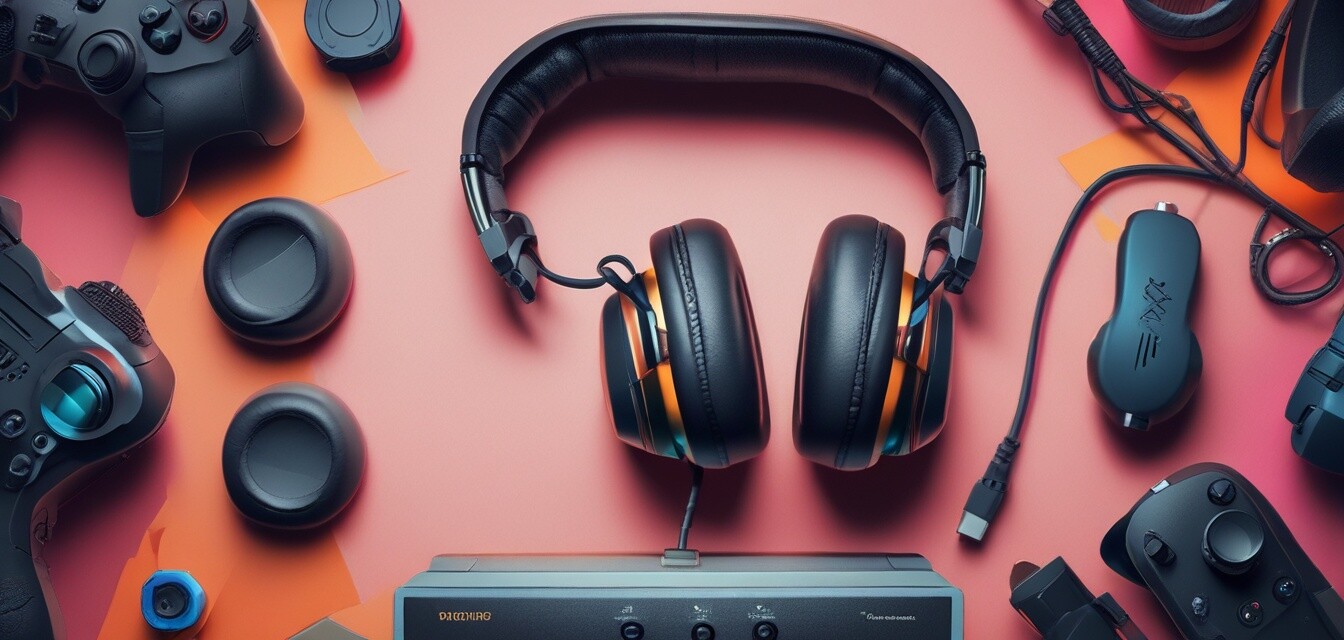
Customization Trends in Gaming Accessories
Key takeaways
- Customization enhances the overall gaming experience.
- Players can personalize aesthetics and functionality of accessories.
- Advancements in 3D printing are paving the way for unique designs.
- Brands are engaging with communities to tailor products to gamer preferences.
- Custom accessories offer competitive advantages and deeper connections.
As gaming becomes an increasingly immersive experience, the demand for personalized accessories has surged. Gamers today seek not just high-performance equipment but also the ability to customize their setups to reflect their unique personalities and preferences. In this article, we explore the latest customization trends in gaming accessories and how they are changing the landscape of gaming.
The rise of customization
Gone are the days when gamers had to settle for standard equipment that didn't meet their needs. Today, customization is at the forefront. With a multitude of options available, players can enhance their gaming experience through tailored accessories. From brightly colored controller skins to personalized headset designs, the variety is staggering.
Popular customization options
- Personalized controller skins
- Custom headsets with adjustable sound settings
- Modular gaming setups for versatile configurations
- 3D printed accessories for unique designs
- Lighting enhancements for immersive environments
Customization features enhancing gameplay
Customization isn't only aesthetic; it can also enhance functionality. Here's how different features are making a difference:
| Accessory Type | Customization Feature | Benefit |
|---|---|---|
| Controllers | Interchangeable thumbsticks | Improved grip and precision |
| Headsets | Adjustable sound profiles | Enhanced audio tailored to game type |
| Skins | Custom graphics | Personal expression and visual flair |
| Cases | Unique designs and colors | Increased protection and style |
Community engagement and feedback
Brands are increasingly tapping into the gamer community to understand preferences and design needs. Through forums, polls, and social media platforms, gamers are voicing their desires for specific features or designs. This engagement allows companies to align their production with actual user demand, leading to more successful products.
For more insights on how community feedback is shaping products, check out our buying guides.
Examples of community-driven products
- Collaboration with popular gamers to develop new designs.
- Surveys asking players about their needs in gaming accessories.
- Beta testing programs for community-driven feedback on upcoming products.
The future of customization in gaming
The trend towards personalized gaming accessories is only expected to grow. With advancements in technology, including 3D printing and customizable software, the potential for unique gear is boundless. Players seek out not just tools but also extensions of their gaming identity.
Innovation and technology
We are witnessing innovations that allow for unprecedented levels of customization:
- 3D printing capable of creating hardware suited to individual preferences.
- Software enabling programmable buttons for controllers.
- Virtual reality headsets with customizable features.
Conclusion
As gaming continues to evolve, the demand for customization in accessories is likely to rise. Players are increasingly looking for ways to express themselves and tailor performance to their unique playing styles. By embracing these trends, gamers can not only enhance their experience but also invest in gear that genuinely represents who they are. Explore our range of performance enhancers to elevate your gaming setup.
Pros
- Enhanced user experience through tailored designs.
- Improved gameplay performance with personalized features.
- Expression of individuality and style.
Cons
- Potentially higher costs for customizable options.
- Longer delivery times for custom products.
- May require additional learning to optimize custom features.